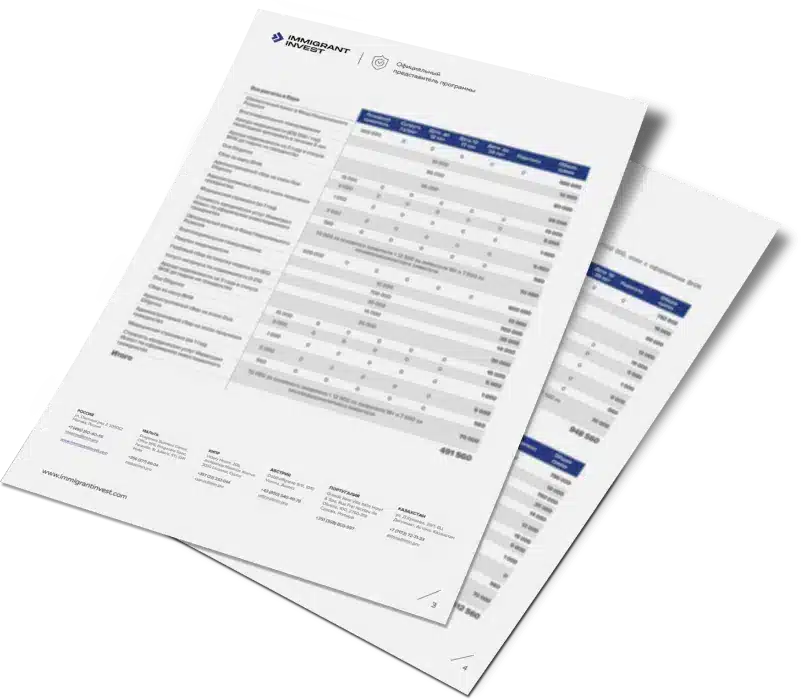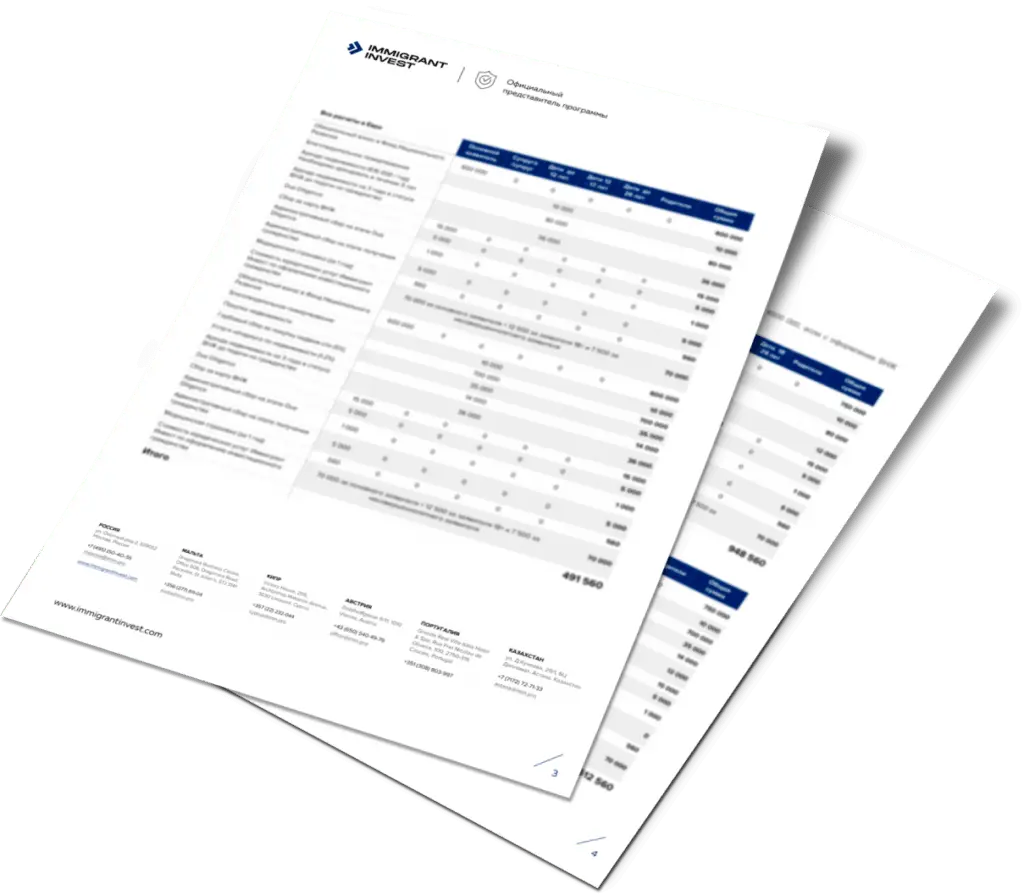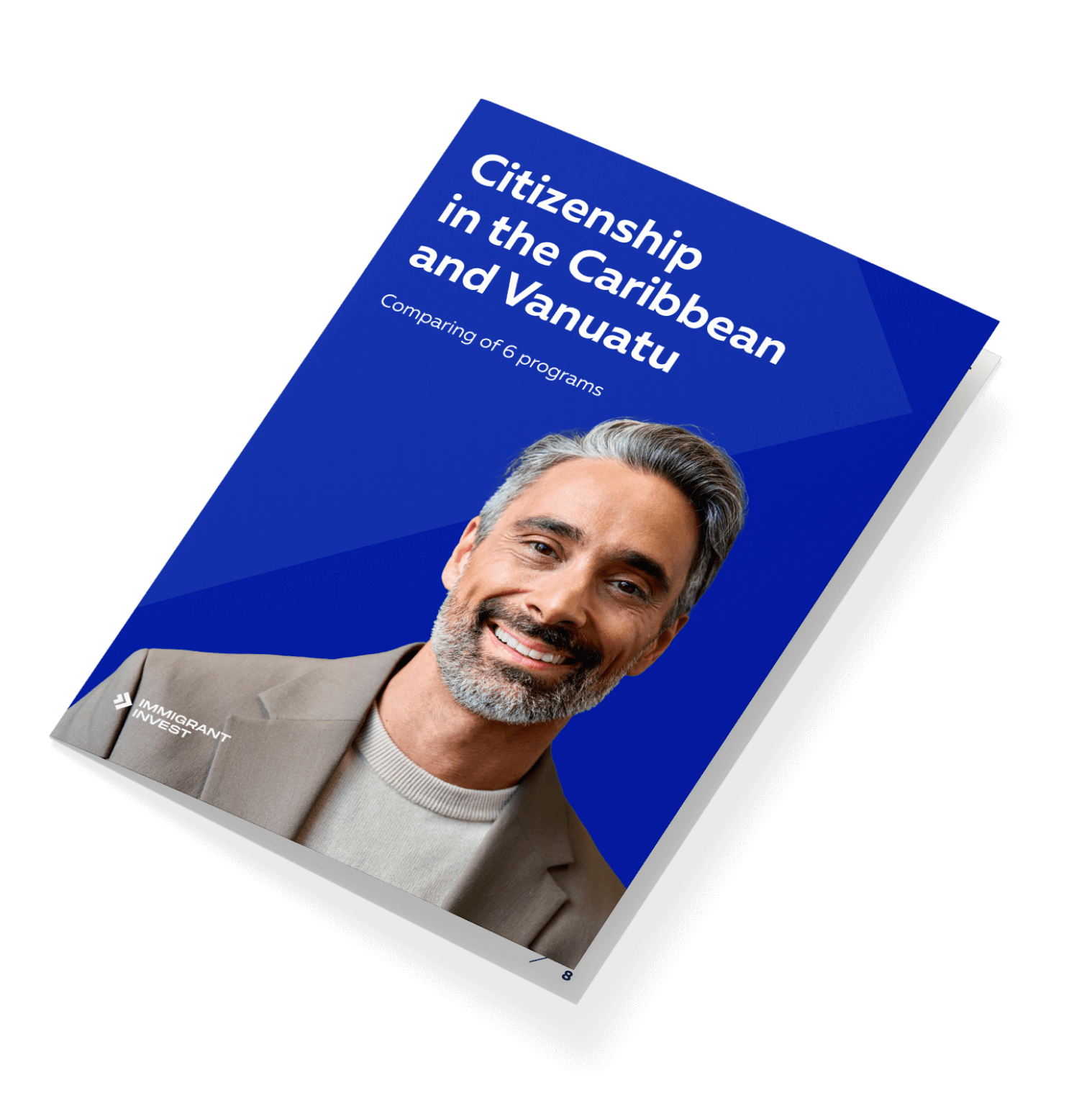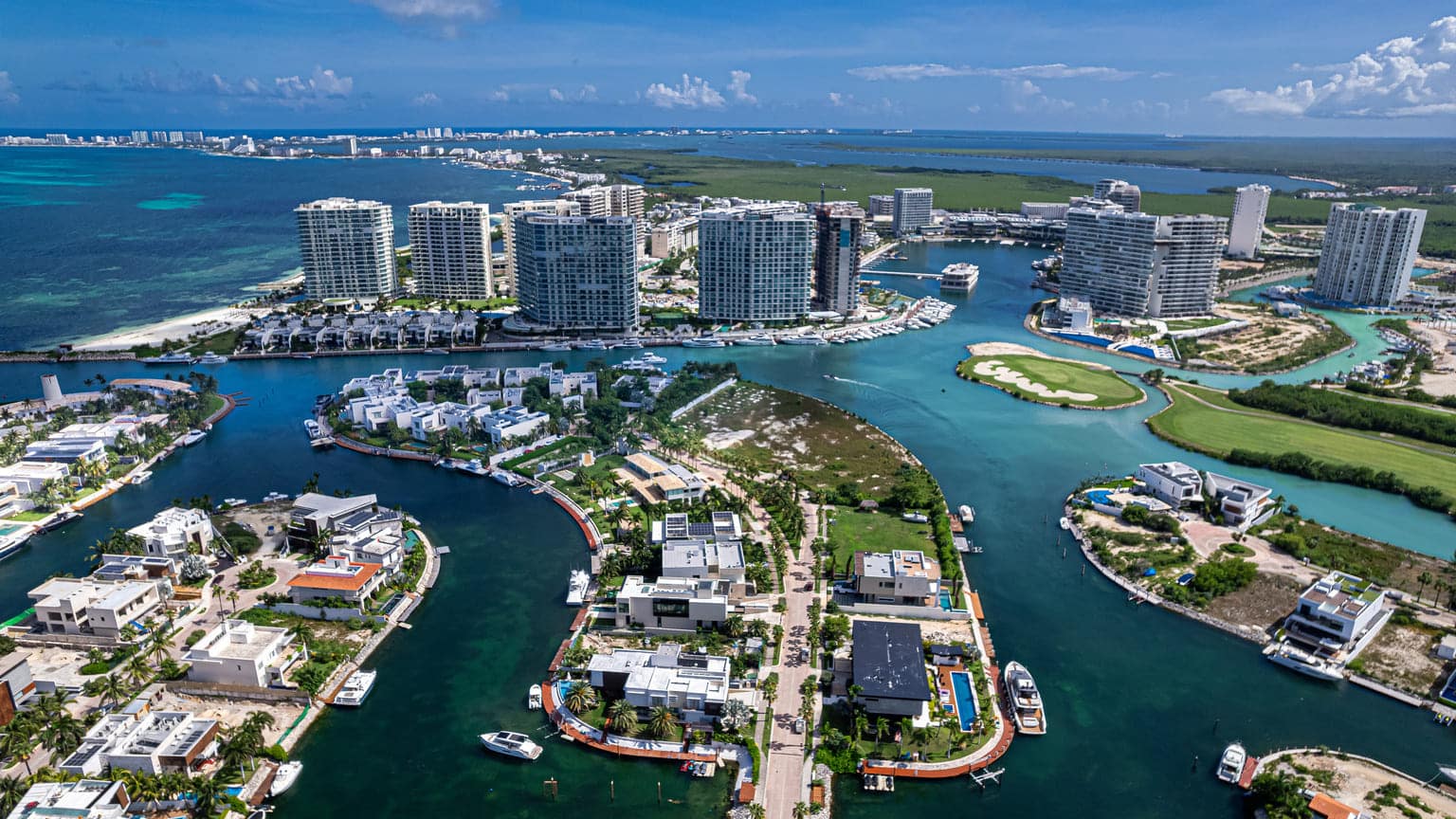- What is dual citizenship?
- Can US nationals become dual citizens?
- The most common ways to obtain dual citizenship
- Benefits and rights of dual citizens with US passports
- Duties of dual citizens
- Documents required to obtain dual citizenship
- 17 best countries for US nationals to obtain second citizenship
- How a US citizen can obtain dual citizenship in the Caribbean in just six months
- Key points about dual citizenship for Americans
- Frequently asked questions
What is dual citizenship?
Dual citizenship, or dual nationality, is when a person is legally recognised as a citizen of two countries simultaneously.
This status grants individuals citizenship rights in both countries, including voting, working, and accessing social benefits. However, it also subjects them to the laws and obligations of both nations, such as taxation and military service.
To hold dual citizenship, both countries must legally allow it. Some nations permit it, while others require individuals to renounce their original citizenship before acquiring another.
In most cases, an individual has to apply for a passport in another country if they want to be a dual national. However, under specific circumstances, dual citizenship is acquired automatically.
For instance, a child born to foreign parents in a country that grants citizenship by birth, such as the US, Canada, or Mexico, may qualify for two passports. This is possible if the parents' home country grants citizenship by descent, such as Italy or Portugal.
Most European and South American countries allow foreigners to acquire citizenship without renouncing their original nationality. Dual citizenship is also allowed in some Caribbean states, such as Grenada or St Kitts and Nevis.
Can US nationals become dual citizens?
The United States permits dual citizenship, allowing Americans to obtain another country's passport without renouncing their US one.
After obtaining dual nationality, Americans retain the rights and responsibilities of US citizenship, including the obligation to file and pay taxes on worldwide income, even if residing abroad. They must also use an American passport to enter and leave the United States.
Countries allowing dual citizenship with the US
| Albania | Egypt | Nigeria |
| Algeria | Finland | Norway |
| Angola | France | Pakistan |
| Antigua and Barbuda | Germany | Paraguay |
| Argentina | Greece | Peru |
| Armenia | Grenada | Philippines |
| Australia | Hungary | Portugal |
| Iceland | Romania | |
| Barbados | Italy | Russia |
| Belgium | Ireland | Serbia |
| Belize | Israel | Slovenia |
| Benin | Jamaica | South Africa |
| Bolivia | Latvia | Sri Lanka |
| Brazil | Lebanon | St Kitts and Nevis |
| Canada | Libya | St Lucia |
| Chile | Sweden | |
| Costa Rica | Malawi | Syria |
| Cyprus | Malta | Tunisia |
| Czechia | Mauritius | Turkey |
| Denmark | Mexico | UK |
| Dominica | New Zealand | Vanuatu |
Some countries prohibit their citizens from holding another passport. These include major nations such as China, India, and Japan.
Other states make it challenging for foreign citizens to obtain their passports. For example, Austria allows foreigners to retain dual citizenship only in cases of extraordinary achievements or if it serves Austria's interests.
The Netherlands permits dual citizenship only in specific cases, such as for individuals married to or in a registered partnership with a Dutch national or those recognized as refugees. Dual citizenship is also allowed if renouncing a passport of another country is legally impossible, like in Argentina or Morocco.
Countries that prohibit dual citizenship
| Andorra | Saudi Arabia | |
| Azerbaijan | Kuwait | Singapore |
| Bahamas | Kyrgyzstan | Slovakia |
| Bahrain | Laos | Solomon Islands |
| Belarus | Macao | Spain |
| Bhutan | Malaysia | Tajikistan |
| Botswana | Marshall Islands | Thailand |
| China | Micronesia | Tonga |
| Congo | Monaco | |
| Cuba | Mongolia | UAE |
| Djibouti | Ukraine | |
| Eswatini | Myanmar | Uzbekistan |
| Ethiopia | Nepal | Venezuela |
| Haiti | North Korea | Vietnam |
| India | Oman | Yemen |
| Indonesia | Papua New Guinea | Zimbabwe |
| Iran | Qatar | |
| Japan | San Marino |
The most common ways to obtain dual citizenship
Citizenship by descent. Individuals can acquire citizenship if they have parents, grandparents, or even great-grandparents who were citizens of a specific country, such as Italy, Ireland, or Poland.
Citizenship by marriage. Many countries simplify the procedure for allowing foreign spouses of their nationals to apply for citizenship. For example, spouses of Maltese citizens can apply after five years of marriage instead of the seven years required for naturalization.
Citizenship by naturalization. Foreigners can obtain citizenship if they have continuously resided in a country for a specified number of years. The average period for naturalization is 5 to 10 years.
Citizenship by investment. Some countries allow foreigners to obtain citizenship by making a substantial financial contribution to the economy. This can include purchasing real estate, investing in a business, acquiring government bonds, or donating to a national fund.
Benefits and rights of dual citizens with US passports
1. Easy relocation. Dual citizenship enables Americans to live, work, and travel freely in their second country, avoiding visa and residency restrictions.
2. Safety. The United States ranks 132nd out of 163 countries in the 2024 Global Peace Ranking. Moving to a safer country of second citizenship, such as Portugal or Ireland, may increase personal security. Both countries rank in the top 10 safest nations, have low crime rates, and offer political stability.
3. Backup plan. Dual citizenship provides a safety net, offering another home to relocate to if conditions in one country become unfavorable.
4. Tax optimization. Dual citizenship may help reduce tax burdens. Many Caribbean countries have no capital gains or inheritance taxes, and some, like St Kitts and Nevis and Antigua and Barbuda, do not levy personal income tax. Paraguay offers a low income tax of 8 to 10%, compared to the US rate of up to 37%.
The US has double taxation treaties with most countries on the list, allowing dual citizens to claim foreign tax credits and avoid double taxation.
5. Lower cost of living. The United States is one of the 10 most expensive countries in the world, so moving elsewhere may offer a more affordable lifestyle, with reduced costs for housing, goods, and services.
For example, maintaining a similar lifestyle costs about $920 per month in Dominica, excluding rent, compared to at least $1,100 in the US.
6. Property ownership. Dual citizenship allows access to real estate markets in countries that restrict property ownership to citizens. Property prices are often lower than in the US. For example, the price per square meter in Grenada is around $1,100, compared to $3,620 in the US.
7. Business opportunities. Dual citizens can tap into broader markets, benefit from local business incentives, and experience streamlined processes for establishing businesses in their second country.
For example, obtaining citizenship in an EU state would help an American set up a business in any EU country easily, thanks to online registration systems. They can access the whole EU single market, with significantly less expensive legal costs for startups than in the US.
8. Access to more affordable healthcare and education. Dual citizens can utilize the healthcare and education systems of their second country, often at lower costs or even for free. For example, Canada offers a publicly funded healthcare system regarded as one of the best globally.
Education in EU countries is typically much more affordable in the US. For instance, in public Italian universities, tuition fees can be as low as $210 per year.
9. Family reunification. Dual citizenship simplifies staying close to family members who reside in the second country, making visits and long-term stays hassle-free.
In Mexico, spouses and children can apply for residence permits through family reunification. In Malta, children, spouses, parents, and grandparents can obtain citizenship alongside the primary applicant seeking a Maltese passport.
Duties of dual citizens
Dual citizens are obligated to comply with the laws and requirements of both countries. These duties may vary depending on national regulations but typically include three aspects.
1. Legal compliance. Dual citizens must obey the laws of both nations, even when abroad, and can be held accountable in both jurisdictions.
2. Double taxation. US citizens are taxed on worldwide income, regardless of residence. Other countries may also require tax filings, though tax treaties can mitigate this burden.
3. National service. Some countries mandate military service or require participation in civic obligations like jury duty.
Dual allegiance may carry an additional risk during political, legal, or diplomatic disputes, as loyalty to both countries can lead to conflicts.
At the same time, American nationals are not obliged to inform the authorities about obtaining another citizenship.
Documents required to obtain dual citizenship
The required documents vary by country and individual circumstances but generally include:
- birth certificates;
- passports;
- proof of legal residence in the country of application;
- marriage or divorce certificates, if applicable;
- proof of language proficiency, if required;
- proof of income;
- certificate of clean criminal record;
- application form.
Documents must be translated into the official language of the country of application. If it is allowed to submit copies of documents, they must be legally notarized.
17 best countries for US nationals to obtain second citizenship
Many countries offer Americans the opportunity to obtain dual citizenship, but some stand out for their straightforward processes.
Nations like Portugal, Italy, and Ireland provide relatively simple paths to citizenship by naturalization or descent. Successful applicants gain access to the EU's freedoms of movement and trade.
Canada and Mexico are ideal options for Americans seeking to settle closer to home. Their strong cultural and financial ties with the United States make relocation easier, allowing individuals to stay connected to their homeland.
Finally, eight countries provide a path towards citizenship by investment through a fast and cost-effective procedure, especially in Vanuatu and the Caribbean countries.
1. Vanuatu. The country in Oceania offers the cheapest path towards obtaining second citizenship by investment through a non-refundable contribution of $130,000+ to the government fund.
Alternatively, a foreigner can invest $157,000 or more in the CNO Future Fund. To maintain citizenship, the investment needs to be held for at least 5 years.
Vanuatu has the fastest CBI program as the investor can obtain a passport in between one and four months.
2. Dominica offers two options: a $200,000 contribution to the Economic Diversification Fund or a real estate purchase starting at $200,000. Property can be resold 3 years after obtaining citizenship if sold to a non-program participant or 5 years in another case.
The process of obtaining a Dominica passport takes at least 6 months.
3. Antigua and Barbuda offers four investment options:
- non-refundable contribution to the National Development fund — $230,000+;
- non-refundable contribution to a higher education institution — $260,000+, available only for families of six people or more;
- real estate purchase — $300,000+, maintained for at least 5 years;
- business investments — $400,000+.
The procedure for obtaining a passport takes at least 6 months.
4. Grenada allows applicants to either contribute $235,000 to the National Transformation Fund or purchase real estate for $270,000 or more. Real estate can be resold 5 years after citizenship is granted. The process takes at least 8 months.
5. St Lucia allows investors to choose from five options:
- contribution to the National Economic Fund — $240,000+;
- infrastructure project investment — $250,000+;
- purchase of government bonds — $300,000+;
- purchase of real estate — $300,000+;
- business investments — $1,000,000+.
Investments in government bonds and real estate are refundable after 5 years.
6. St Kitts and Nevis offers three investment options to foreigners who want to obtain citizenship:
- non-refundable contribution to the Sustainable Growth Fund of at least $250,000;
- real estate purchase for at least $325,000;
- investments in an Approved Public Benefit Project of at least $250,000.
Property buyers can resell real estate and recover their investment 7 years after obtaining citizenship.
A St Kitts and Nevis passport can be obtained in at least 6 months.
Foreigners obtaining citizenship by investment in the Caribbean are generally not required to visit the country. The exception is Antigua and Barbuda, where investors must stay in the country for 5 days within the first 5 years of obtaining the passport.
7. Malta. A Maltese passport by naturalisation for exceptional services by direct investment is granted to wealthy individuals, who fulfill the following investment requirements:
- contribute to the National Development and Social Fund, NDSF — €600,000+;
- donate to a non-governmental organization — €10,000+;
- rent or purchase residential real estate — €16,000+ per year for rent, or €700,000+ for purchase.
Before applying for citizenship, an investor must first obtain a residence permit. The citizenship application can then be submitted after 1 or 3 years of residency in Malta, depending on the contribution to the NDSF.
Foreigners investing €600,000 or more can apply for a Maltese passport 3 years after obtaining a residence permit. Those contributing €750,000 or more can apply after just 1 year.
The total investment required depends on the number of family members. For a family of four, the minimum investment is €927,000, while the maximum is €1,661,000.
Maltese citizens can relocate to Malta indefinitely or choose to reside in any EU country.
8. Argentina. Argentina offers one of the fastest naturalization processes, requiring only two years of residence to become eligible for a passport.
Foreigners marrying an Argentinian citizen can apply for citizenship immediately, without language or residency requirements.
Children born in Argentina are automatically granted citizenship, and their foreign parents can obtain a passport through a simplified process after living in the country for 3 months.
9. Italy is one of the best European countries for US nationals to obtain citizenship by descent, as more than 17 million Americans identify as being of Italian descent, according to the latest US census.
To be eligible, applicants must prove that their ancestor was born in Italy after March 17th, 1861, and did not naturalize in another country before July 1st, 1912, or before the birth of their descendant. Lineage can be traced through parents, grandparents, great-grandparents, or further ancestors.
Applications are processed within 6 to 12 months. The applicant is not required to take any language exams or be a resident of the country.
10. Portugal grants citizenship by naturalization after 5 years of living in the country. Investors can gain residency through the Portugal Golden Visa, which requires a minimum contribution of €250,000 to the country’s economy. The Golden Visa holders maintain their status by visiting Portugal for just seven days annually.
11. Paraguay. This South American country allows foreigners to apply for citizenship after living in the country for two years with a residency permit, followed by another two years with permanent residency.
12. Ireland. With over 30 million Americans claiming Irish descent, many US citizens may qualify for an Irish passport. The country allows citizenship applications from individuals with at least one Irish parent, grandparent, or great-grandparent. Those with a parent born in Ireland before 2005 receive passports automatically.
The application process takes 6 to 12 months upon providing proof of ancestry.
13. Poland. Nearly 10 million Americans identify as being of Polish descent, making this a viable option for many.
Poland offers citizenship by descent to individuals with a Polish parent, grandparent, or great-grandparent. The ancestor must have been born in the country or its former territories, lived there before 1920, and retained Polish citizenship at the time of the applicant’s birth.
The application process typically takes 1 to 2 years.
14. Canada. US nationals can obtain Canadian citizenship by naturalization. Applicants must first become permanent residents, then live and pay taxes in the country for at least 3 years within the 5 years preceding the application.
The average processing time for Canadian citizenship applications is 7 months.
15. Mexico offers citizenship by naturalization after 5 years of residency. Applicants must pass exams on Mexican history and culture and demonstrate ties to the community. Close relatives of Mexican nationals can qualify after just 2 years.
Mexican citizenship can also be acquired by birth if an applicant has at least one Mexican parent. With over 30 million Americans of Mexican descent, many qualify.
The procedure for obtaining a Mexican passport takes between 5 and 12 months.
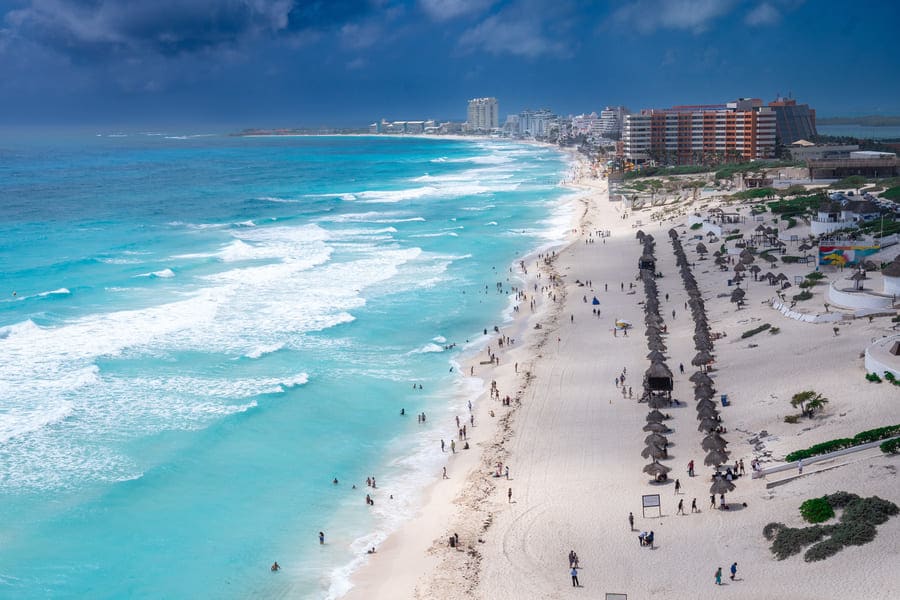
How a US citizen can obtain dual citizenship in the Caribbean in just six months
According to Immigrant Invest experts, obtaining citizenship by investment in the five Caribbean states — Antigua and Barbuda, Dominica, Grenada, St Kitts and Nevis, and St Lucia — takes at least 6 months.
The process can be completed remotely in all these countries. Antigua and Barbuda is the only state with residency requirements: new citizens must visit for at least five days within five years of receiving their passports.
Lawyers assist investors at every stage of the process, regardless of the chosen country or investment option.
Immigrant Invest’s certified Compliance Anti-Money Laundering Officer conducts confidential preliminary Due Diligence checks using international legal and business databases. This step reduces the rejection risk to 1%.
If any issues arise, alternative solutions are provided based on the applicant’s needs.
The investor receives a list of required documents. Immigrant Invest lawyers handle translations, apostilles, and government forms, ensuring all paperwork is properly submitted to the relevant authorities.
The Citizenship by Investment Unit of the selected country reviews the applicant’s documents. No travel is required, but an online interview is conducted.
Upon approval, the applicant fulfils the investment requirement according to the chosen option.
After the investment is completed, the passport and naturalization certificates are prepared. The documents are sent to an Immigrant Invest office or to the investor’s preferred address.
Key points about dual citizenship for Americans
- A US national can obtain a passport of another country without renouncing American citizenship.
- Dual nationals have the right to live, work, study, and access healthcare and social benefits in both countries.
- Americans with multiple passports must comply with the laws and obligations of both nations, including potential double taxation and mandatory military service.
- Citizenship by investment is one of the fastest paths to becoming a dual citizen. This option is available in Caribbean countries and Vanuatu to foreigners who contribute at least $130,000 to the country’s economy.
- Other pathways to dual citizenship include descent, naturalization and marriage.
Frequently asked questions
Can one hold dual citizenship in the United States?
Yes, US citizens can hold dual citizenship if the other country does not specifically explicitly prohibit it.
Which countries allow dual citizenship with the US?
There is a wide list of nations allowing dual citizenship with the US, including most countries in Europe and South America, as well as Canada, Mexico, and Caribbean countries offering citizenship by investment.
Which countries do not allow dual nationality for American citizens?
Several major countries like China, India, and Japan prohibit their citizens from holding another country’s passport, including a US passport.
Can an American citizen enter the country without a US passport?
No, US citizens must enter and leave the United States using their US passport. Dual citizens may also need to present the passport of their other nationality.
How to apply for dual citizenship?
The application process varies by country and the pathway chosen. Citizenship by investment is often the simplest and fastest option.
Is dual citizenship allowed in the US and Canada?
Yes, Canada allows dual citizenship with the US. A Canadian passport can be obtained through naturalization after 5 years of residency.
Will I have to renounce US citizenship after obtaining another country’s passport?
No, US citizens are not required to renounce their citizenship unless the other country explicitly forbids dual nationality.
Do dual citizens have to pay US taxes?
Yes, US citizens must pay taxes on their worldwide income, regardless of residency. However, tax treaties with many countries allow dual citizens to claim foreign tax credits, reducing their overall tax burden.



